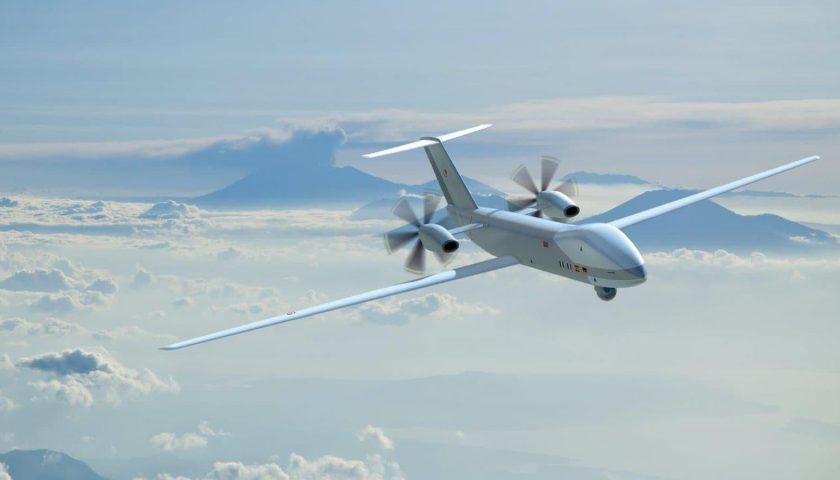The least we can say is that optimism was not de rigueur about the FCAS next-generation combat aircraft program at the Paris Air Forum. Obviously, the two main players in the program, the French Dassault Aviation and the German Airbus Defense & Space, did not manage to agree on the distribution of roles around the Next Generation Fighter pillar, the most imposing of the program which must design the combat aircraft at the heart of the Future Air Combat System, or FCAS. And for Eric Trappier, Chairman of Dassault Aviation, it is now necessary for the decision to be taken at the political level, in order to hope to break the impasse in which the program finds itself, which, according to him, has already taken several years of delay, and should not be able to produce a fully operational combat aircraft until 2050.
For Dassault Aviation, there is no question of sharing management of the NGF pillar with Airbus DS, as the latter demands. The French aeronautics group believes that it has much richer expertise in this area, with the experience acquired around the program Rafale but also other legendary aircraft designed by Dassault Aviation such as the Mirage 2000, the Mirage F1, the Super Etendard, the Mirage III/5 and the Mirage IV, while Airbus DS can only rely on partial experience concerning the program Eurofighter Typhoon and Panavia Tornado, two aircraft designed largely by the British aviation industry. In addition, Eric Trappier recalled that to ensure management of the NGF pillar, France agreed to cede control of 5 of the 7 other pillars of the FCAS program, to share management of the propulsion pillar with the German MTU, and to entrust Berlin with the management of the Eurodrone program, with the consequences that this entails. Although it is not mentioned by the French leader, it is also useful to remember that German companies obtained 6 of the 9 pillars of the Franco-German MGCS battle tank program, again with the aim of balancing industrial sharing between France and Germany.

For Airbus DS and its CEO Guillaume Faury, the perception is quite different. Indeed, the European aircraft manufacturer does not consider itself in any way inferior in technology or know-how vis-à-vis its French counterpart, especially since the group has developed advanced capabilities in certain key areas, as in stealth. In addition, relaying in this the positions of the Bundestag and the Luftwaffe, there is no question for Germany of financing a program of which it would not have complete control, even if this were to be shared with Paris, including with regard to on-board technologies. Finally, even if this is never openly addressed, Berlin fears that by ceding control of the NGF to Dassault Aviation, the FCAS is evolving towards an aircraft that meets above all the expectations and needs of the French air and naval forces, by minimizing the needs expressed by the Luftwaffe.

75% of this article remains to read,
Subscribe to access it!
The Classic subscriptions provide access to
articles in their full version, and without advertising,
from 6,90 €.
Newsletter subscription
Register for the Meta-Defense Newsletter to receive the
latest fashion articles daily or weekly


[…] […]
[…] the replacement of Rafale French and Typhoon European, is at a standstill, against a backdrop of deep disagreement over industrial sharing around the first pillar of the program aimed at designing…, the combat aircraft at the heart of this program. Indeed, the two major manufacturers of […]
[…] which now seems almost inevitable, is often presented as the consequence of an industrial opposition between Dassault Aviation and Airbus Défense&Space over the Next Generation Fighter, the first and most important pillar of the FCAS program, […]